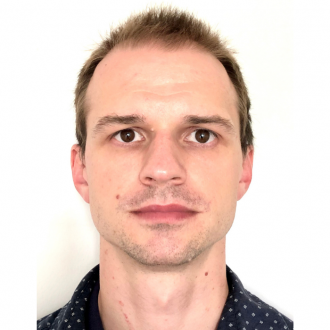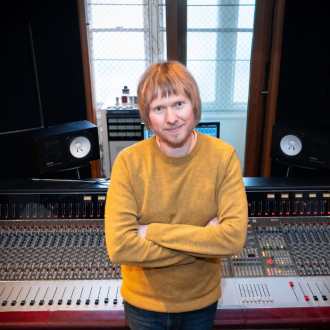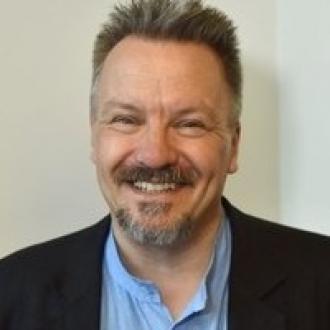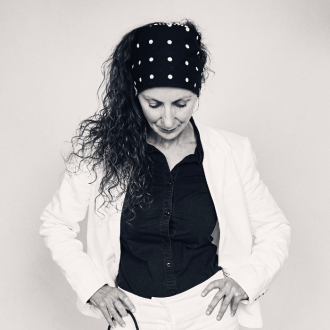- Postgraduate
Advanced Music Technology MA
Overview
Would you like to expand the range of your music technology capabilities and explore new techniques?
This Masters in music technology will equip you with a broad range of skills – not only in music technology, but also in related media like video, electronic composition and performance, and software design. Your technical mastery of the latest hardware and software will make you attractive to a wide range of potential employers.
The University of West London is home to one of the largest audio complexes in Europe, enabling you to learn on some of the best equipment in the industry.
With the help of our highly experienced staff, who are actively engaged in the music industry, you will cover everything from digital audio interface design to multi-track recording and mixing for surround sound.
You will also create your own personal development plan and learn how to conduct Masters-level research into specific aspects of music production.
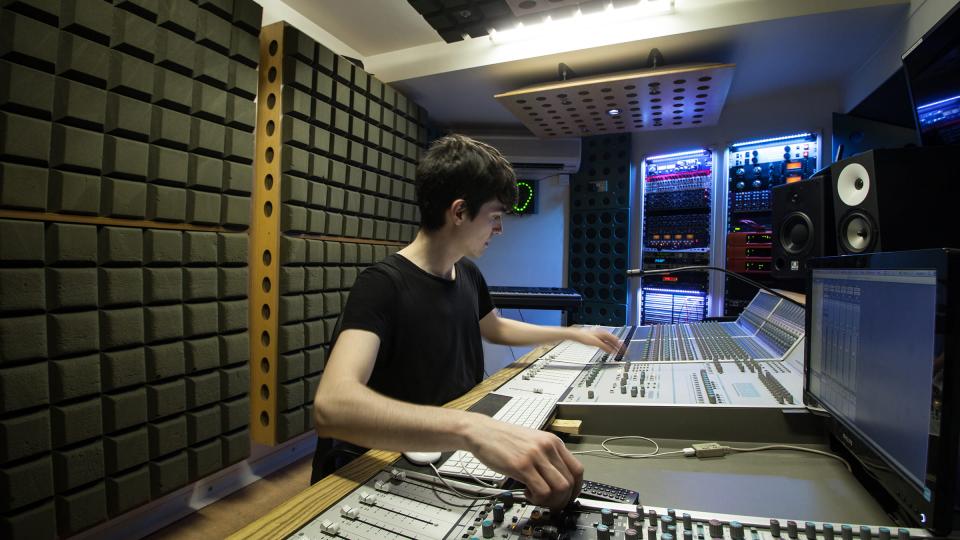
Select your desired study option, then pick a start date to see relevant course information:
Start date:
If your desired start date is not available, try selecting a different study option.
Why study Advanced Music Technology with us?


What our students say…
The facilities were fantastic, lecturers really helpful, and the extracurricular activities were brilliant! The best part of being at LCM was the networking opportunities. I got to liaise with industry professionals in master classes, and I got job opportunities from these events. My course was fantastic.
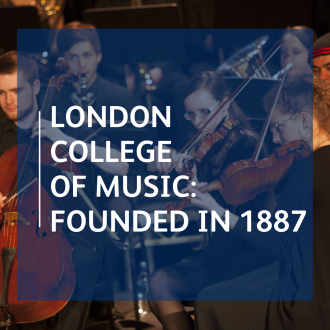


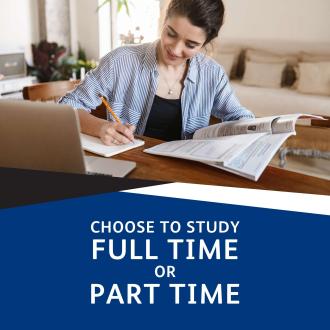
Course detail & modules
Gain the knowledge and technical skills that you need to work in a cutting-edge creative-audio and sound-engineering field, from music production to sound design, 3-D audio to sonic art, and software development to audio for games.
AI approaches are embedded into many of the modules - from tailored use of large-language models to empower research to bespoke music-creation/production tools that inspire enhanced creative practice - graduates will be equipped to embrace the rapid technological advances that will shape their future careers.
This course focuses on topics from advanced music production to the evolving arena of 3-D mixing and recording. It also encompasses software-interface programming and offers specialist pathways via game audio or advanced recording, taught by staff who are actively engaged in the music industry and conduct high-level academic research.
Our studios are meticulously designed to meet professional specifications, giving you the opportunity to work on both digital and analogue consoles. There is access to Pro Tools systems with high-end plug-ins, along with other advanced sound production technologies such as, Kyma and Ambisonics to classic 2” tape. You will also have the opportunity to conduct Dolby Atmos® immersive-audio work in our 7.1.4 studios and work with the incredible Pete Townshend synthesizer collection.
Along with diverse technical opportunities, this course is designed with career progression in mind. You will graduate with an enhanced skill set that will place you at a distinct advantage when entering this competitive industry.
Find out about our successful course alumni.
You must take all compulsory modules and may choose one of two optional modules:
- Game Audio OR Approaches to Recording
Compulsory modules
-
Interface Design for Music
This module will give you a practical introduction to the software design and programming techniques involved in designing contemporary audio applications. You will focus on the Max language and its wide variety of uses, studying the theory, design and architecture of synthesizers, samplers, effects, sequencers and composition engines. You will then develop and demonstrate your own original application.
-
Immersive Audio
You will explore many of the concepts, research and techniques associated with various aspects of immersive audio in a focused and detailed framework. You will study 3-D audio, through both binaural approaches when working with 360 video – typical of contemporary virtual-reality applications, and speaker-array reproduction using Dolby Atmos as is increasingly used for cinema sound.
-
Interactive Music Technology
You will be schooled in concepts associated with contemporary electronic sound-art, music and sound design for multi-media-installation art, interactive music software and electronic/electroacoustic composition. You will select a particular area for a research, production and performance project of your own. This project will culminate in a performance or installation involving audio technology in a public space as part of LCM’s 'Electric Music' series.
-
Advanced Hybrid Production
You will learn about the evolving notion of the contemporary audio producer as a reflexive, multidisciplinary and innovative sonic artist. You will engage with parallel analogue and digital, software and hardware – hybrid – production workflows (recording, sampling, synthesis, programming, mixing and mastering). You will be able to apply advanced audio techniques, pushing the expressive boundaries of the sonic medium and contextualising current practice.
-
Research Methods
You will be trained in research methods and critical methodology as preparation for undertaking research that supports and advances the project work in your course. You will define, articulate and critically reflect upon the research concerns of your own practice, thereby underpinning and enhancing your knowledge and understanding of your chosen field of study. You will present your work at the multi-disciplinary LCM postgraduate conference.
-
Masters Project
For this module you will undertake an ambitious and self-managed large-scale practical project on a topic of your choice. The project will be framed by a study of contemporary research around your topic, and will be designed to expand and enhance the skills and knowledge around a specialised area. The project makes an excellent showcase to kickstart your future career.
Optional modules
-
Approaches to Recording
You will analyse and study methodologies, practices and positions on recorded ‘realism’ and be introduced to more experimental approaches to recording that might subvert this. You will be given the opportunity to conduct self-directed research into both development and future use of microphone & recording technology via both stereo and surround microphone techniques.
-
Game Audio
This module focuses on music composition and sound design in video games. You will gain considerable practical experience in composing music and creating sound design for games using specialist game-creation software, while analysing and responding to the unique challenges posed in composing nonlinear and interactive music and sound effects.
Entry requirements
You should have an honours degree (2:1 or above) in music technology or a related subject from a UK university or equivalent. We may also offer you a place based on substantial industry experience or training, normally from within the work environment. All applications are considered individually.
Find out more about our processes for recognising previous experience.
On your application form, highlight the full range of your music technology endeavours, for example:
- live recording
- production
- software programming
- studio work.
Give as many details as you can in relation to why you would like to study this course, as well as any other relevant activities, for instance: your compositions, performances or industrial experience.
Mature students should highlight previous employment that may positively impact on their application, for example if you have been working in areas of the music industry or even relevant ‘hobbyist’ activities.
After initial application, you will be asked to submit an audio portfolio that best represents the full range of your relevant achievements. Prepare for this in advance, and choose only the best example of each type of work that you have undertaken. Examples might be:
- 1 x studio production where your role was producer
- 1 x live recording when you acted as sound engineer
- 1 x video clip where you dealt with some part of the audio
- 1 x track where you acted as programmer.
Represent your own specific profile. Work in contrasting genres is encouraged for submission. Ensure that you submit an accompanying text that explains your particular role in each project, and highlights areas of which you are particularly proud.
If your application is successful and you are offered a place, accept promptly to secure the place.
You need to meet our English language requirement of 6.5 overall score for IELTS, with a minimum of 5.5 for each of the 4 individual components (Reading, Writing, Speaking and Listening). Visit our English language requirements page for information on other English language tests we accept.
You also need academic qualifications at the same level as UK applicants. In some countries where teaching is in English, we may accept local qualifications. Check for local equivalents.
We offer pre-sessional English language courses if you do not meet these requirements. Find out more about our English Language courses.
On your application form, highlight the full range of your music technology endeavours, for example:
- live recording
- production
- software programming
- studio work.
Give as many details as you can in relation to why you would like to study this course, as well as any other relevant activities, for instance: your compositions, performances or industrial experience.
Mature students should highlight previous employment that may positively impact on their application, for example if you have been working in areas of the music industry or even relevant ‘hobbyist’ activities.
After initial application, you will be asked to submit an audio portfolio that best represents the full range of your relevant achievements. Prepare for this in advance, and choose only the best example of each type of work that you have undertaken. Examples might be:
- 1 x studio production where your role was producer
- 1 x live recording when you acted as sound engineer
- 1 x video clip where you dealt with some part of the audio
- 1 x track where you acted as programmer.
Represent your own specific profile. Work in contrasting genres is encouraged for submission. Ensure that you submit an accompanying text that explains your particular role in each project, and highlights areas of which you are particularly proud.
If your application is successful and you are offered a place, accept promptly to secure the place.
Fees & funding
Please note:
- Fees for the 2026/27 academic year and onwards may be subject to Government regulation and change.
- Tuition fees are charged for each year of your course. If your course runs for two years or more, you will need to pay the fee for each academic year at the start of that year.
- If your course runs for less than two years, the cost above is for your full course and you will need to pay the full fee upfront.
- If no fee is shown above then the fees for this course are not available yet. Please check again later for updates.
Funding your studies
If you are studying a Masters course you may be eligible to apply for a Postgraduate Loan, this may help contribute towards your course fees and living costs.
Additional funding is available to some types of students, such as disabled students or those with dependants.
We offer a range of scholarships and bursaries, including awards for specific subjects.
Awards for music students are also on offer.
View full details, including conditions and eligibility.
Please note:
- Fees for the 2026/27 academic year and onwards may be subject to Government regulation and change.
- Tuition fees are charged for each year of your course. If your course runs for two years or more, you will need to pay the fee for each academic year at the start of that year.
- If your course runs for less than two years, the cost above is for your full course and you will need to pay the full fee upfront.
- If no fee is shown above then the fees for this course are not available yet. Please check again later for updates.
International students - funding your studies
We offer scholarships for international students including International Ambassador Scholarships.
Further information about funding and financial support for international students is available from the UK Council for International Student Affairs.
Teaching staff
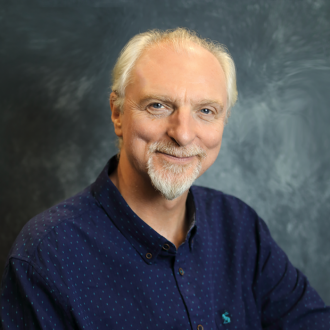
Professor Justin Paterson
I am a Professor of Music Production at the London College of Music. My research has an international profile and has ranged from interactive music-app design to music-production techniques in mixed reality. I have led several research project funded by the AHRC and Innovate UK, and chair the Innovation in Music conference series (http://www.musicinnovation.co.uk/), and I am also an active professional music producer.
I am a Professor of Music Production at the London College of Music. My research has an international profile and has ranged from interactive music-app design to music-production techniques in mixed reality. I have led several research project funded by the AHRC and Innovate UK, and chair the Innovation in Music conference series (http://www.musicinnovation.co.uk/), and I am also an active professional music producer.
Study & career progression

The skills you acquire will give you a career advantage, whether you plan to enter the competitive and constantly evolving music industry in any of several specialist directions or a portfolio career, or set out on a career in academic research.
Several music technology graduates from our course have gone on to be nominated for and win Grammys, Emmys and an Oscar; contribute to major movie and TV soundtracks, and have joined companies such as EA Sports, BBC, MTV and CNN
Previous graduates have gone on to work in a variety of roles, including:
- founder and CEO of 3D audio company 1.618 Digital (whose clients include Google, Comic Relief and Ford)
- head of audio at RAW Video (who have worked with, among others, Florence and the Machine, Hot Chip, Beverley Knight and Sigur Ros, and for clients including MTV, XL Recordings and Channel 4)
- head of higher education for Tech Music Schools
- house engineer and producer at Pocket Studios, Toronto
- live sound engineer for the Oscars
- producer for Imagine Dragons, Britney Spears, Li’l Wayne, Dr Dre, Eminem and Rihanna
- producer for Christina Aguilera and Tinie Tempah
- producer of orchestral sessions for films including the Harry Potter series
- product developer for FXPansion
- remixer for Beyoncé
- sound designer/composer for EA Games, Shanghai
- work with Placebo, Radiohead, Snow Patrol, Radiohead, Kendrick Lamar, Pharrell Williams and Dido
- writer-producer for Bono, Nicole Scherzinger, 50 Cent, Alesha Dixon and Dr Dre.
You may also want to explore a related area of study at postgraduate level. Please see our full list of further study options.
How to apply

You can apply online at any time by following the link below.
Our application form will ask you for some information about:
- what you want to study
- your previous qualifications or experience
- your references
- how we can contact you.
Want to ask us a question first? We would love to hear from you. Contact us free on:
- 0800 036 8888
- courses@uwl.ac.uk
Apply for this course
Next steps after making your application
We aim to make a decision on your application as quickly as we can. If we need any more information about your qualifications, we will be in touch.
In the meantime, come and visit us and find out more about what studying at UWL is like. Sign up for an open day or join a campus tour.
Visit us and see for yourself
Talk to our tutors and find out about our courses and facilities at our next open day or join a campus tour.
We're here to help
Any questions about a course or studying at UWL? We're here to help - call us on 0800 036 8888 (option 2, Monday – Friday 10am-4pm) or email us on courses@uwl.ac.uk.
Our postgraduate prospectus
All of our courses in one place - download now or order a hard copy.

You can apply online at any time by following the link below.
Our application form will ask you for some information about:
- what you want to study
- your previous qualifications or experience
- your references
- how we can contact you.
Want to ask us a question first? We would love to hear from you. Contact us free on:
- 0800 036 8888
- courses@uwl.ac.uk
Apply for this course
Next steps after making your application
We aim to make a decision on your application as quickly as we can. If we need any more information about your qualifications, we will be in touch.
In the meantime, come and visit us and find out more about what studying at UWL is like. Sign up for an open day or join a campus tour.
Visit us and see for yourself
Talk to our tutors and find out about our courses and facilities at our next open day or join a campus tour.
We're here to help
Any questions about a course or studying at UWL? We're here to help - call us on 0800 036 8888 (option 2, Monday – Friday 10am-4pm) or email us on courses@uwl.ac.uk.
Our postgraduate prospectus
All of our courses in one place - download now or order a hard copy.

You can apply online at any time by following the link below.
Our application form will ask you for some information about:
- what you want to study
- your previous qualifications or experience
- your references
- your visa (if required)
- how we can contact you.
Want to ask us a question first? Our dedicated international students’ team would love to hear from you.
- email international@uwl.ac.uk to submit a question
Apply for this course
Next steps after making your application
We aim to make a decision on your application as quickly as we can. If we need any more information about your qualifications, we will be in touch.
In the meantime, come and visit us and find out more about what studying at UWL is like. Sign up for an open day or join a campus tour.
Visit us and see for yourself
Talk to our tutors and find out about our courses and facilities at our next open day or join a campus tour.
We're here to help
Any questions about a course or studying at UWL? We're here to help - call us on 0800 036 8888 (option 2, Monday – Friday 10am-4pm) or email us on courses@uwl.ac.uk.
Our postgraduate prospectus
All of our courses in one place - download now or order a hard copy.
Search for courses
Facilities
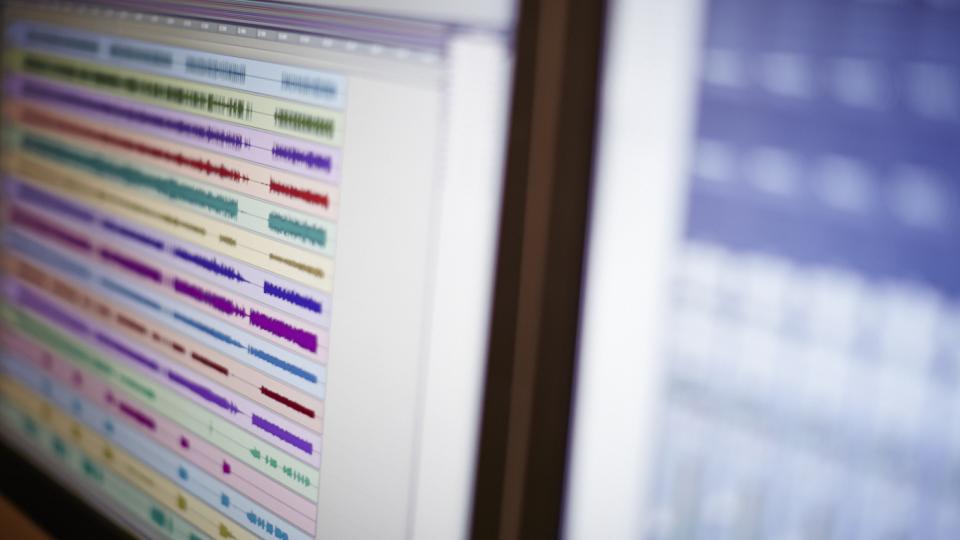
At a glance
Our specialist music technology facilities include:
- 18 professionally designed studios
- nine live rooms
- 10 large format analogue consoles with extensive outboard equipment
- five professional-standard performance and recording spaces
- five DiGiCo Live consoles
- full Dante / Rednet integration across the entire site
- 64 channel location recording facilities
- three Mac labs with 24 hour access
- comprehensive range of microphones and backline
- Steinway pianos throughout the school (37 in total)
- links to multiple London venues for performances and recitals.
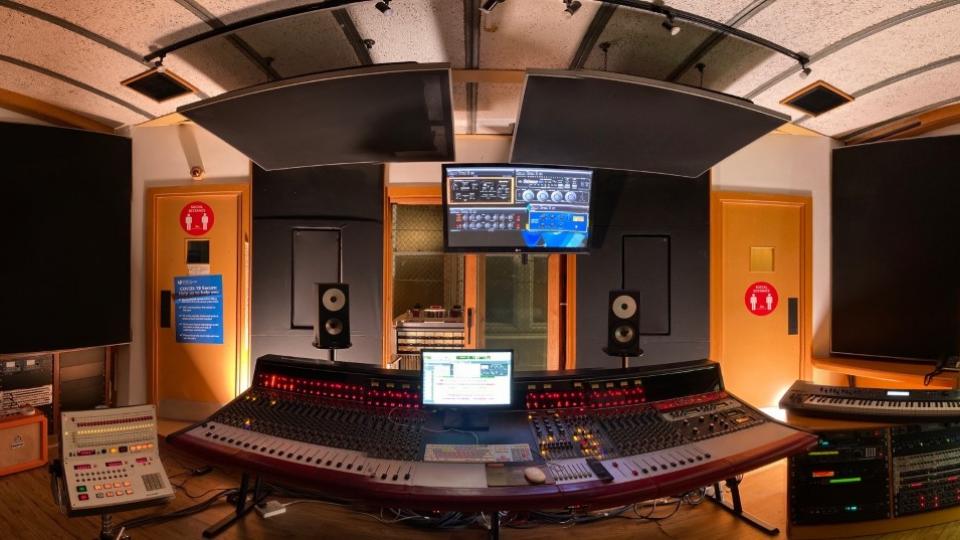
Paragon Annex Studios
Our newest facilities, the Paragon Annex Studios are useful for a wide range of tasks – from tracking live bands, to recording Foley, to mixing in Dolby Atmos.
Each studio comes with extensive outboard systems a variety of digital and analogue synths and an extensive mic stock, giving you the best tools to create your recordings.
All tracking rooms enjoy access to one of three shared live rooms of varying sizes, with a Steinway Baby Grand in the largest room, which is fully capable of accommodating a full band.
Watch video tours of all seven Paragon Annex Studios on our YouTube page.
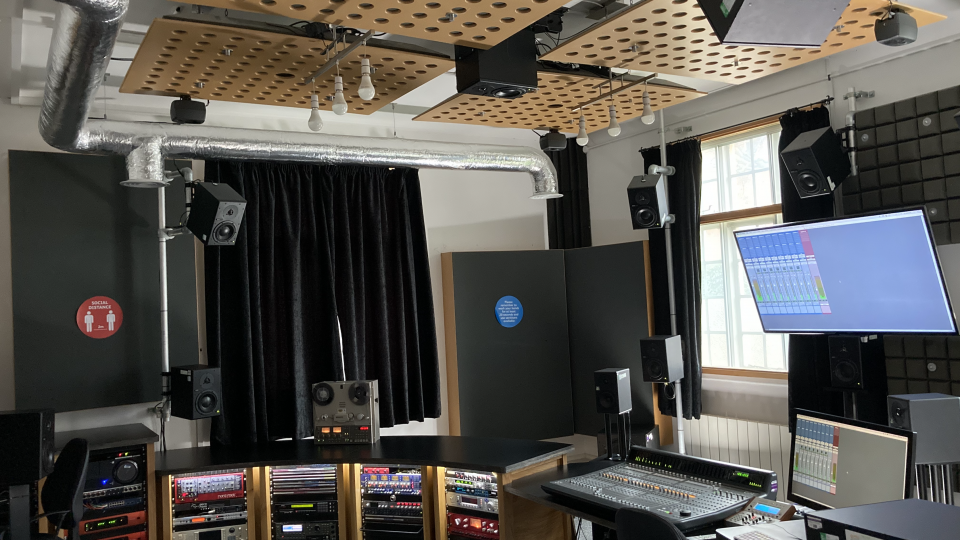
Vestry Hall
Studio 1: This studio represents a dedication to quality signal-path and a combination of classic and contemporary recording capabilities.
Facilities include:
- Custom Series-75 Neve console
- Otari MTR90 Mk2 24-track 2” analogue tape recorder,
- Pro Tools HDX with Apogee Symphony AD/DA and monitoring by ATC and Amphion.
Studio 2: Recently rebuilt, this studio is designed around a 17-channel 3D speaker array, capable of both Dolby Atmos and Auro 3D® monitoring.
Extensive outboard and synth/sampling hardware plus flexible speaker array make this studio a collaborative and experimental-audio powerhouse.
The studio is connected to Vestry Hall, a large orchestral recording space, and a separate, fully isolated, drum and amplified-instrument live room.

St Mary’s Road Basement Studios
These rooms feature either a Digidesign C24 control surface or an Audient ASP 8024 analogue recording console and are also equipped with Protools HDX and Focusrite RedNet IO hardware for high-end AD/DA.
Each studio comes with its own Dynamic and Condenser Microphone kits of a professional standard, giving you the best tools to create your recordings.
All tracking rooms enjoy access to live rooms of varying sizes and many feature multiple isolated booths which feature acoustic pianos by Steinway.
MA Advanced Music Technology alumni
The London College of Music stands at the forefront of the academic study of music technology and record production.
On graduation, you will join the ranks of our successful alumni, including:
- Sam Wheat - music producer, songwriter and mixer. Has worked with: Pharell Williams, Rihanna, Paloma Faith, John Legend, Amy Winehouse, Van Morrison, Ellie Goulding, Foals and The Rolling Stones. Has won a Grammy with Kendrick Lamar and an Oscar with Common and John Legend.
- Phelan Kane - programmer, producer and engineer. Has worked with: Placebo, Dido, Snow Patrol, Beggars Banquet and Boy George.
- Alex da Kid - musician, record producer, songwriter and record executive. Has worked with: Rihanna, Imagine Dragons, Christina Aguilera, Skylar Grey, Eminem, Dr Dre and Nicki Minaj. Has multiple Grammy nominations.
- Roland Shaw - sound design: VR, games and film. Has worked on: Half Life: Alyx, Dota 2, Team Fortress 2 and Alice: Madness Returns. Music & Sound Awards 2021 finalist for Half Life: Alyx.
- Ryan Wilkins - CEO of Raw London. Has worked with: Florence and the Machine, Lily Allen, Beverly Knight, Babyshambles, Keane, Katy Perry, The Drums, Hot Chip, Sigur Ros and The Kooks. Has also worked with companies such as Twitter, Vodafone, Save the Children and Marie Curie.
- Oliver Kadel - founder and head of audio at 1.618 Digital. Clients include: Ford, HSBC, Google, PWC, FIFA, JC Decaux, O2 Academy. Won two Emmy awards for Micro Monsters with David Attenborough.
- Steve Massey - audio engineer, composer and owner of Freezabox Records. Has worked with Robbie Williams, Primal Scream, Beady Eye and Jarvis Cocker. Clients include BBC.
- Laura Beck - sound engineer at British Grove Studios. Has worked with: Robbie Williams, Anne Dudley, Paloma Faith. Grammy-nominated with Prince of Egypt.
- Martin Knight – producer, engineer, mixer, live-sound engineer. Has worked with Bastille, New Order, Katie Melua, Gary Numan, Pixie Lott, Steve Hackett. Has won a Grammy with Snarky Puppy.
ARTSFEST
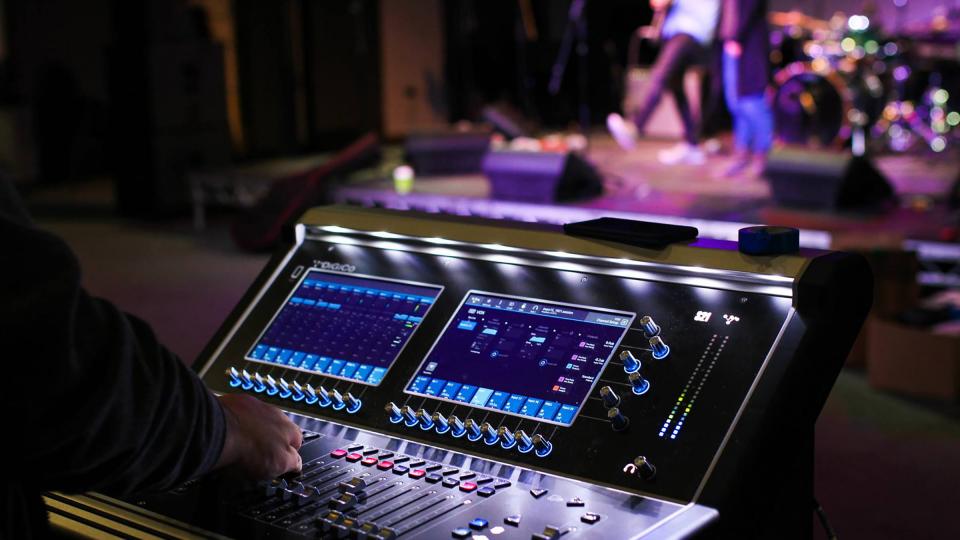
Find out more about the work our students produce and view some of their recent work by visiting our Music Technology ARTSFEST page.
Student life at UWL
Important notes for applicants
Disclaimer
*Modern universities - defined as higher education institutions that were granted university status in, and subsequent to, 1992.
**The National Student Survey 2023 and 2024 - Average of answers to all questions by registered student population. Excludes specialist institutions.
Testimonials - our students or former students provided all of our testimonials - often a student from the course but sometimes another student. For example, the testimonial often comes from another UWL student when the course is new.
Optional modules - where optional modules are offered they will run subject to staff availability and viable student numbers opting to take the module.
Videos - all videos on our course pages were accurate at the time of filming. In some cases a new Course Leader has joined the University since the video was filmed.
Availability of placements - if you choose a course with placement/internship route we would like to advise you that if a placement/internship opportunity does not arise when you are expected to undertake the placement then the University will automatically transfer you to the non-internship route, this is to ensure you are still successful in being awarded a degree.


